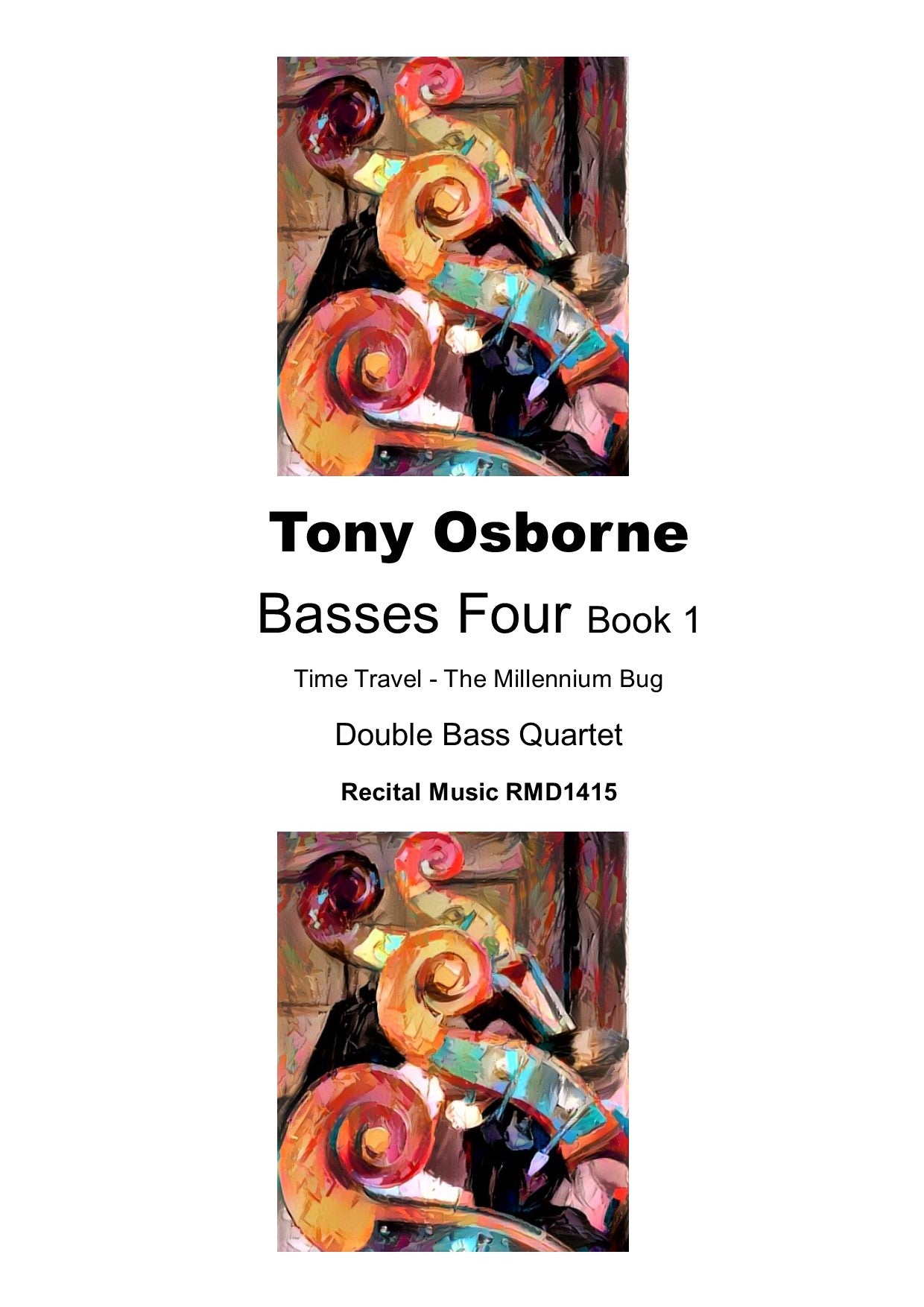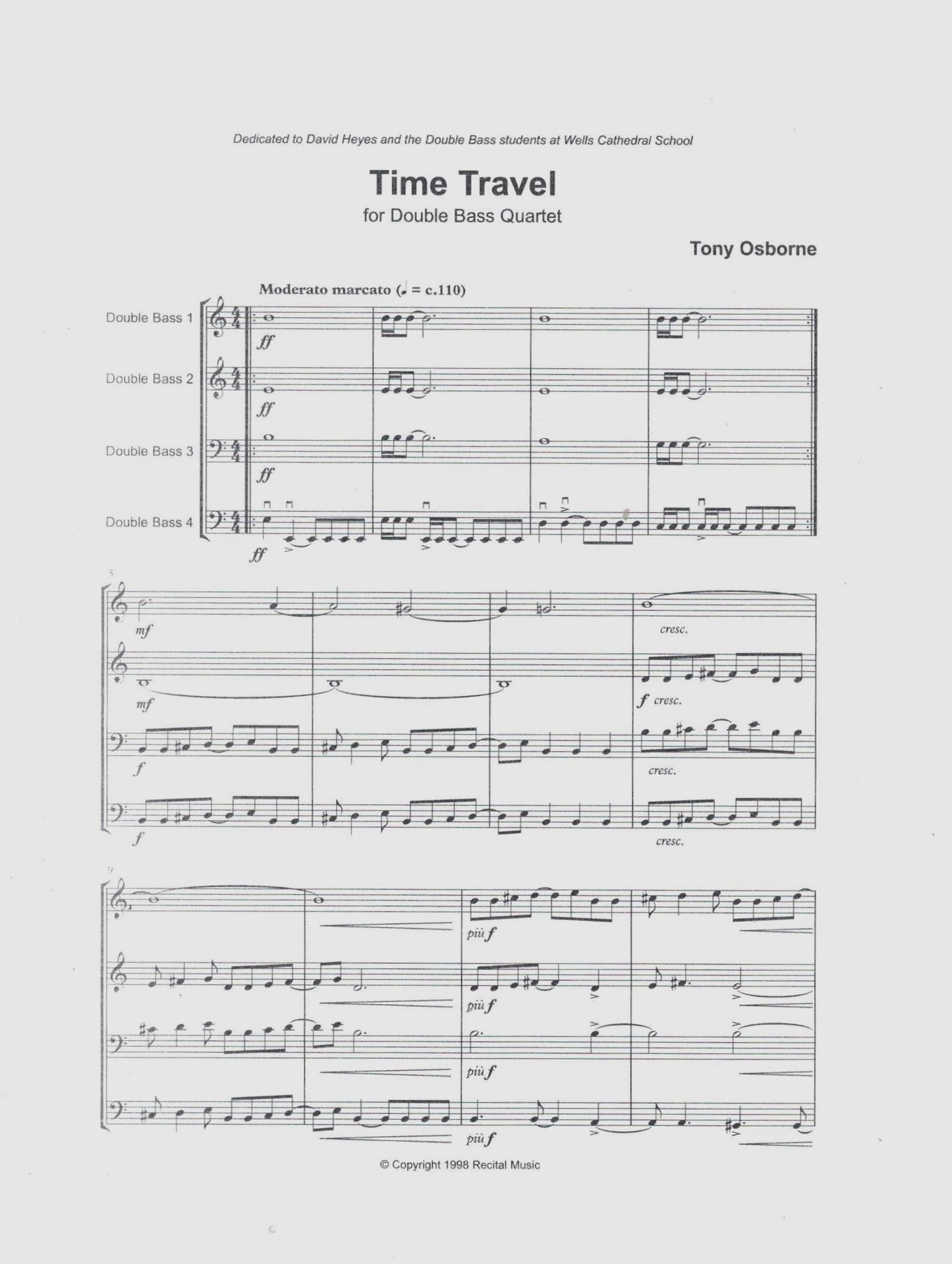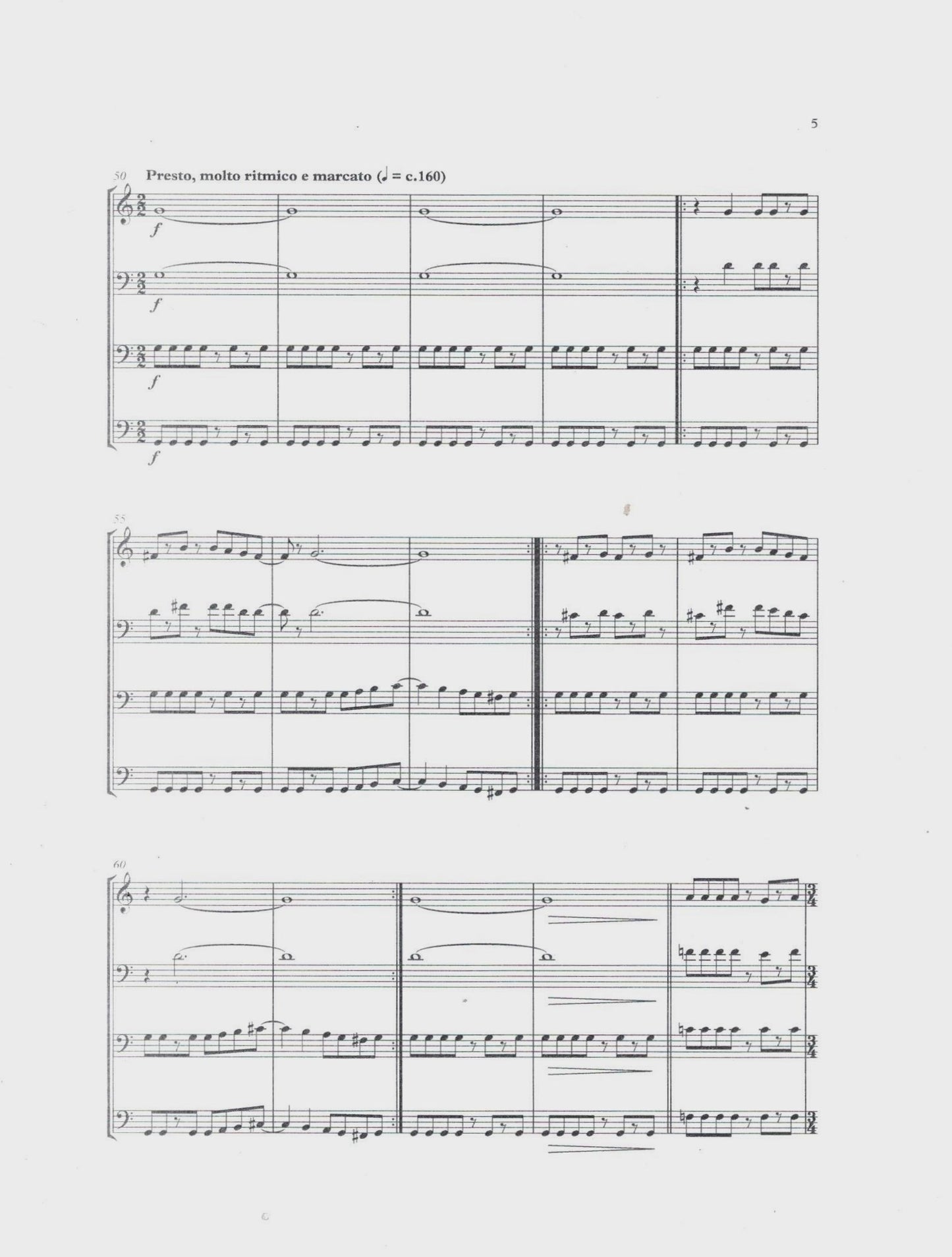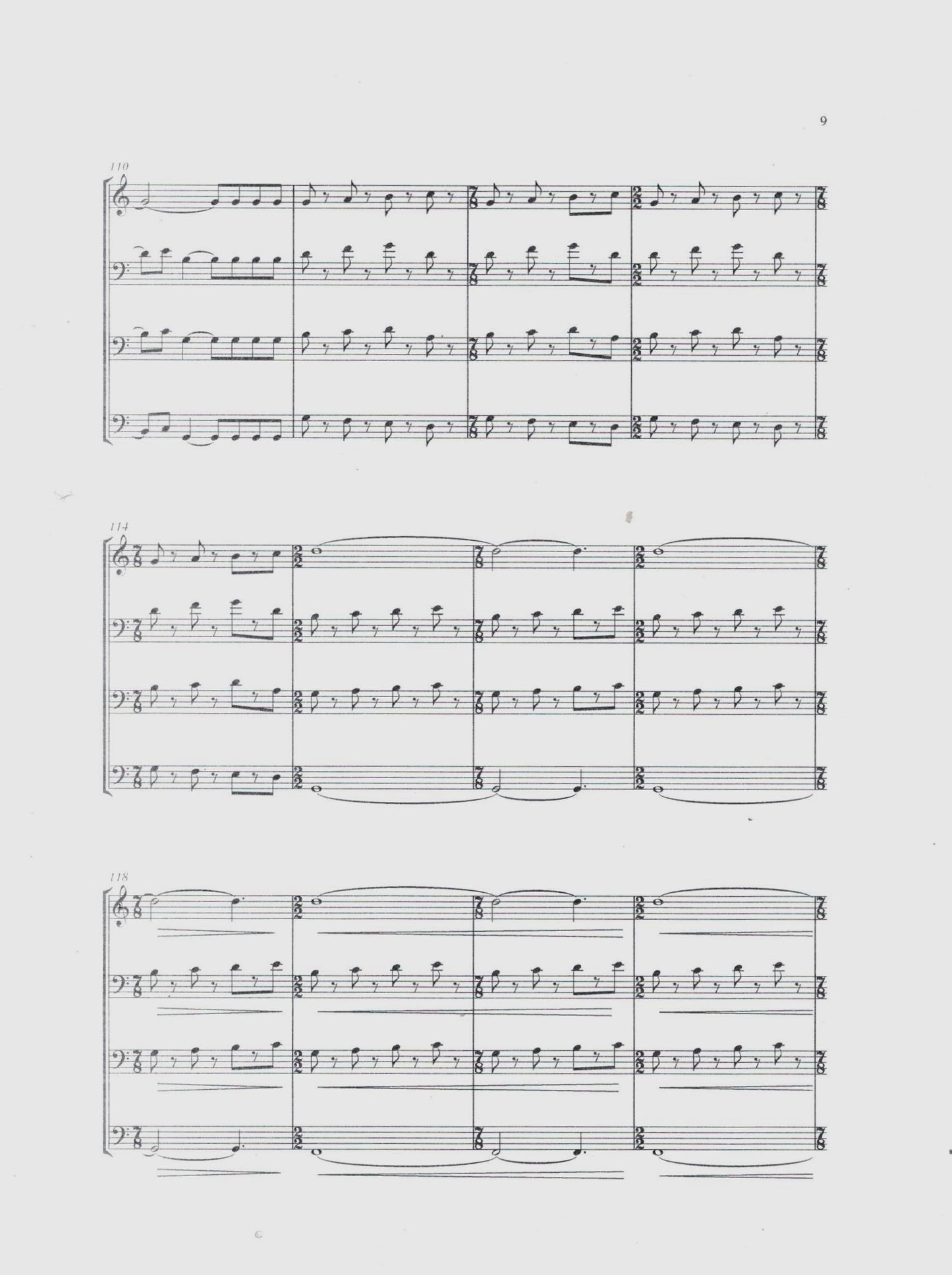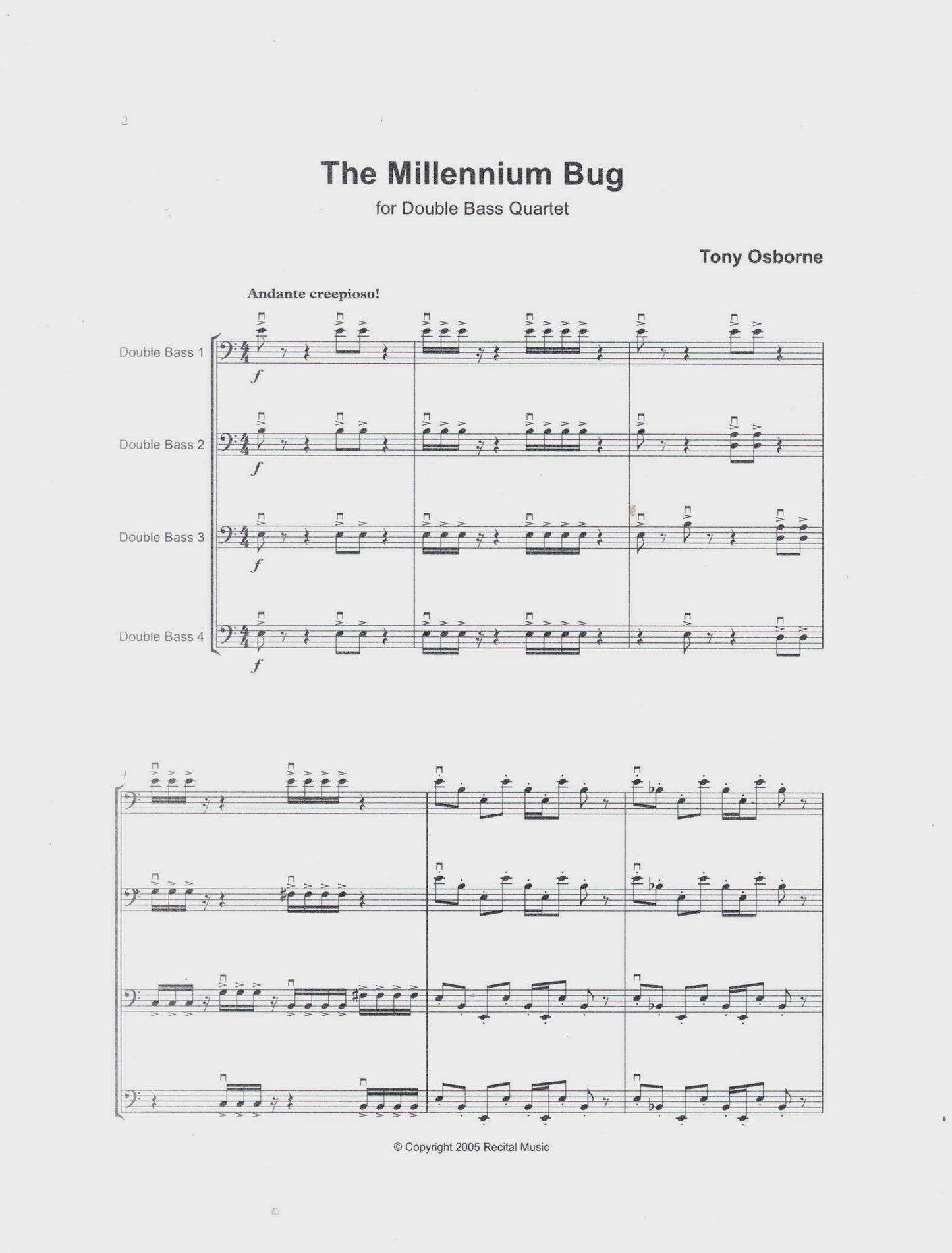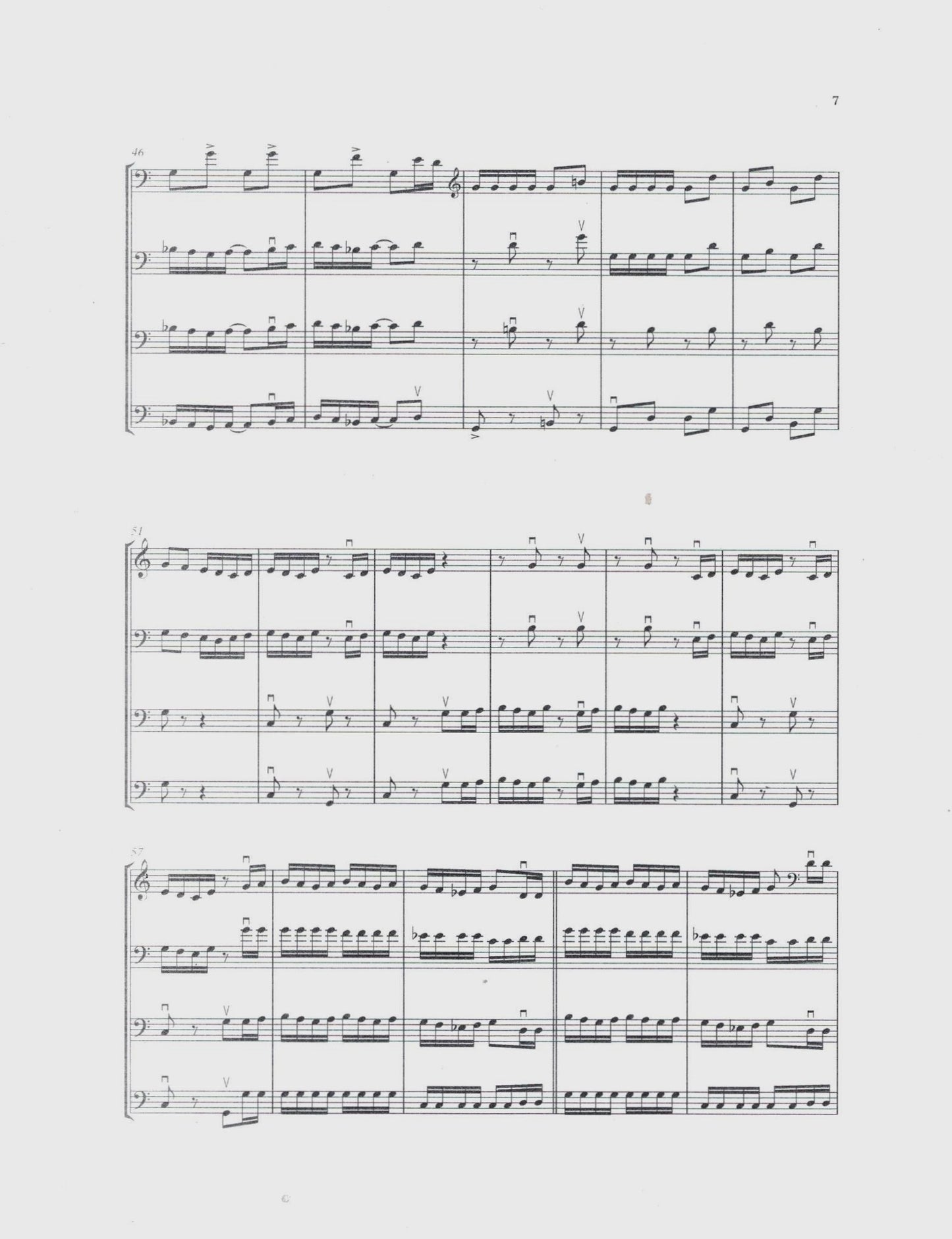David Heyes
Tony Osborne: Basses Four Book 1 for double bass quartet
Tony Osborne: Basses Four Book 1 for double bass quartet
Couldn't load pickup availability
Table of Contents
1. Time Travel
2. The Millennium Bug
Introduction
Tony Osborne composed a wealth of inventive and accessible double bass quartets for every age and ability level. Often employing jazz styles and idioms alongside an exciting rhythmic drive and momentum, he created many quartets that are instantly appealing to players and audiences alike.
About the Book
Basses Four Book 1 brings together two exciting pieces that are aimed at the intermediate quartet. Both offer musical and technical challenges in equal measure, written in an engaging and appealing style and are typical of Tony Osborne’s upbeat and adventurous musical language.
1. Time Travel
Time Travel was commissioned by David Heyes for the double bass department at Wells Cathedral School (Somerset, UK) and was premiered in the Concert Hall on 9 November 1997 by Jennifer Knight, David Heyes, Sarah Horton and Philip Anson.
Time, movement, drive, momentum, energy - all of these convey a feeling of the rhythmic power in this pieces. It is in two distinct sections - the first [Moderato] reflects contained or restrained energy, building up prior to its release. It opens with a bold, fanfare-like statement followed by a strongly syncopated theme, which returns in the second section. A second theme, exclusive to this section, gives a definite jazz character - which is more rhythmically stable. The syncopated theme and opening fanfare are then restated. The second section [Presto, molto ritmico e marcato] projects more flowing, liberated energy. An insistent lower rhythm underlines a simple but powerful theme - reminiscent of an Indian raga. The flow is spiced with irregular time signatures, as well as references to the earlier section. Through the development of this the energy flow is undiminished as it builds to a strong conclusion. [Tony Osborne]
Review
"Rhythmic power is the focus of this two-movement piece by Tony Osborne. Written for four double basses of intermediate standard, the work strongly portrays a feeling of time, movement, drive, momentum and energy. The first section (Moderato) with its bold fanfare-like opening statement, stunning syncopated first theme, and more rhythmically stable jazz-like second theme, reflects restrained energy, while the second section (Presto) projects more flowing, liberated energy. The insistent rhythmic lines of the lower parts accompany a simple but powerful theme
reminiscent of an Indian raga. Irregular time signatures as well as fleeting references to the earlier section create a feel of tremendous energy, building right up to the strong conclusion. Time Travel is a highly entertaining work to perform and listen to." [STRINGENDO - Australian Strings Teachers Association]
2. The Millennium Bug
Composed in late 1999, during the 'millennium bug' scare, this fun piece is aimed at the intermediate bass quartet and remains in bass clef throughout apart from a few forays into low thumb position by Bass 1. Full of typical Osborne jazz influences and styles, it has great rhythmic energy and drive, abounding with striking syncopations and ending with a fun-packed hoe-down finale. Great fun to play.
The words ‘Millennium Bug’ conjured up chaos and confusion at the end of the 20th-century, although this one is a little better mannered! At first it hops about in a rather nonchalant way - obviously not bothered by the prospect of being caught, but getting generally cheekier until it works up to a foot-tapping ‘Hoe Down’ with some ‘calling words’ thrown in for the adventurous quartet. This is obviously a user-friendly Millennium Bug which should provide lots of entertainment. [Tony Osborne]
The Millennium Bug was premiered at St. Antony’s Leweston School (Sherborne, Dorset UK) on 2 October 2005
About the Composer
Born in 1947 into a musical family, Tony Osborne studied at the Royal Academy of Music (London) with John Walton (double bass) and Richard Stoker (composition), and divided a busy career between composing, teaching, and performing. A prolific composer and arranger, Tony's original compositions include works in almost every genre, notably Chaconne Syncopations and Wainwright's Ways for brass
quintet, Celebration Fanfare for brass ensemble, the musical A Fine Time for Wine, a beautiful and dramatic Requiem, and many works for string orchestra. Tony’s music for young bassists is very much at the heart of the teaching repertoire, particularly his jazzy and enjoyable bass trios, and quartets, and he had the rare ability to create wonderful music that is always player and audience-friendly.
In 2001 Tony Osborne was elected an ARAM (Associate of the Royal Academy of Music) for his pioneering and important work for double bass and was a featured com- poser at Bass-Fest for over ten years. He was a very successful BIBF Composer-in-residence in 2002-3, was a judge for the British Composer Awards, and a judge for the BIBF Composition Competition from 1999 until 2015.
Tony Osborne died on 30 March 2019 at the age of 71.
